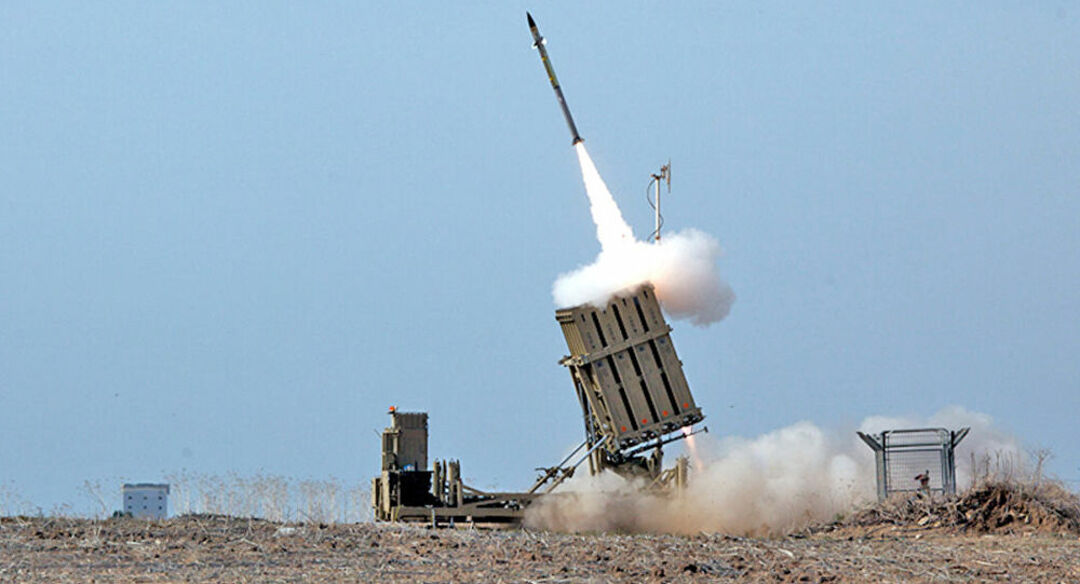-
After Hezbollah's Strike... Questions Arise About the Effectiveness of Israeli Air Defense Systems
-
This attack highlights the importance of continuous development in drone technologies and air defense systems, indicating a new technological arms race in the Middle East

Following the bloodiest losses in the Israeli army's ranks in a single day since the conflict began over a year ago, through the most violent "Binyamina raid" ever, questions are being raised about how Hezbollah's drone reached the military facility and Israel's failure to intercept it - an unprecedented event for one of the region's strongest armies.
The army is investigating how the drone reached its target, its ability to evade radars, the failure to sound warning sirens, and to determine if there was human error or negligence. Meanwhile, Hezbollah claims that the drone used is a new model previously unused and unknown to the Israelis.
The attack, which targeted a restaurant inside a military facility in Binyamina south of Haifa, resulted in dozens of Israeli officers and soldiers being killed and wounded while gathered for dinner.
Military expert Ismail Abu Ayoub considers the Binyamina raid a "qualitative strike" from all aspects and for several reasons. He explains to "Al-Hurra" website that "the attack proved that no air defense system is capable of detecting and intercepting targets 100% of the time, and in the world of armament, there are always surprises and unexpected events."
He added that "the drone used in the raid might be made of materials that radars cannot detect (non-wave reflective), such as Bakelite, fiberglass, and plastic."
He continued, "This drone may be equipped with an engine that doesn't emit infrared radiation, possibly a small electric motor, and there's a factor that contributed to the drone reaching its goal, which is the study of weak points in radar detection."
Hezbollah - listed as a terrorist organization by the United States and other countries - announced in a statement late Sunday night that it targeted "one of the elite Golani Brigade camps in Binyamina south of Haifa city (...) unknown to many settlers."
The party reported, "In a qualitative and complex operation, the rocket force (...) launched dozens of rockets towards various targets in the Nahariya and Acre areas to distract Israeli air defense systems, and simultaneously, the air force (...) launched swarms of various drones, some used for the first time, towards different areas in Acre and Haifa, where the qualitative drones managed to penetrate Israeli air defense radars without being detected and reached their target in the Golani elite brigade training camp in the Binyamina area south of Haifa city."
The Israeli army announced late Sunday night that four of its soldiers were killed in "a drone attack that penetrated the airspace from Lebanese territory and exploded at a military training base" near Binyamina in central Israel.
Fifty-eight soldiers were wounded in the attack, seven critically, nine moderately, and the rest lightly. Israeli Army Chief of Staff Herzi Halevi considered the attack on Monday as "difficult and painful," stating, "We are at war, and an attack on a training base in the home front is difficult and its results are painful," during his inspection of the base.
Levant-Al-Hurra
You May Also Like
Popular Posts
Caricature
BENEFIT Sponsors BuildHer...
- April 23, 2025
BENEFIT, the Kingdom’s innovator and leading company in Fintech and electronic financial transactions service, has sponsored the BuildHer CityHack 2025 Hackathon, a two-day event spearheaded by the College of Engineering and Technology at the Royal University for Women (RUW).
Aimed at secondary school students, the event brought together a distinguished group of academic professionals and technology experts to mentor and inspire young participants.
More than 100 high school students from across the Kingdom of Bahrain took part in the hackathon, which featured an intensive programme of training workshops and hands-on sessions. These activities were tailored to enhance participants’ critical thinking, collaborative problem-solving, and team-building capabilities, while also encouraging the development of practical and sustainable solutions to contemporary challenges using modern technological tools.
BENEFIT’s Chief Executive Mr. Abdulwahed AlJanahi, commented: “Our support for this educational hackathon reflects our long-term strategic vision to nurture the talents of emerging national youth and empower the next generation of accomplished female leaders in technology. By fostering creativity and innovation, we aim to contribute meaningfully to Bahrain’s comprehensive development goals and align with the aspirations outlined in the Kingdom’s Vision 2030—an ambition in which BENEFIT plays a central role.”
Professor Riyadh Yousif Hamzah, President of the Royal University for Women, commented: “This initiative reflects our commitment to advancing women in STEM fields. We're cultivating a generation of creative, solution-driven female leaders who will drive national development. Our partnership with BENEFIT exemplifies the powerful synergy between academia and private sector in supporting educational innovation.”
Hanan Abdulla Hasan, Senior Manager, PR & Communication at BENEFIT, said: “We are honoured to collaborate with RUW in supporting this remarkable technology-focused event. It highlights our commitment to social responsibility, and our ongoing efforts to enhance the digital and innovation capabilities of young Bahraini women and foster their ability to harness technological tools in the service of a smarter, more sustainable future.”
For his part, Dr. Humam ElAgha, Acting Dean of the College of Engineering and Technology at the University, said: “BuildHer CityHack 2025 embodies our hands-on approach to education. By tackling real-world problems through creative thinking and sustainable solutions, we're preparing women to thrive in the knowledge economy – a cornerstone of the University's vision.”
opinion
Report
ads
Newsletter
Subscribe to our mailing list to get the new updates!






















